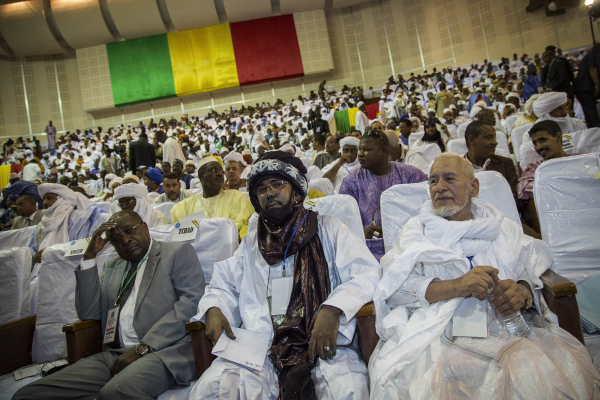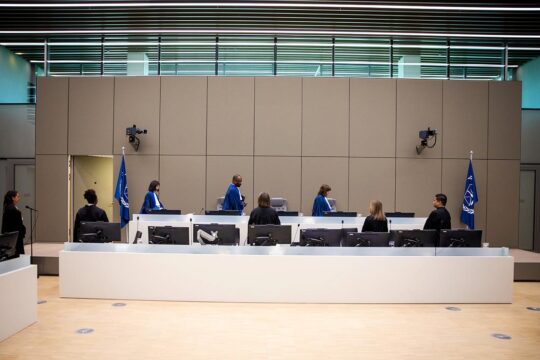Malians go to the polls on July 29 in presidential elections. Many issues have been discussed in the candidates’ campaign meetings, including the peace agreement signed in 2015 which provides for a transitional justice process. The opposition is calling for revision of the accord, which it says is not inclusive enough.
Since the start of the campaign on July 4, the 24 candidates have been travelling around Bamako and the regional capitals explaining their policies to voters. The peace deal always comes up. Incumbent president Ibrahim Boubacar Keita is promising to boost implementation of the accord, while the opposition criticizes not only its content but also the process that led to its signature.
The opposition African Solidarity for Democracy and Independence party (Sadi) led by Oumar Mariko is one of the fiercest critics of the accord, which it promises to revise if it is elected. “We think it is not inclusive,” says Allaye Bocoum, a member of Sadi’s national political bureau. “It was not done by Malians.” He says Sadi does not want to reject the accord entirely but to make it more national. “There is no ethnic group in Mali that has not killed or been victimized, and we are proposing that people talk to each other in a constructive way,” says Bocoum, who is urging dialogue for reconciliation.
The Union for the Republic and Democracy (URD) party of opposition leader Soumaïla Cissé takes a similar line. The URD thinks that talking about transitional justice without revising the peace accord would be putting the cart before the horse. “Today we have the Agreement, which is not inclusive either with regard to the process or its proposals for emerging from crisis,” says Etienne Fakaba Sissoko, a spokesman for presidential candidate Soumaïla Cissé. “For us, the fundamental issue is not transitional justice but first dialogue between Malians. It is after that process that we will see if we need to apply reconciliation mechanisms like transitional justice or not.”
The peace and reconciliation accord, whose implementation is stalling, was reached between the Malian government, the Coordination of rebel Azawad movements and the Platform, which groups movements close to the government. It was aimed mainly at restoring peace to the north of the country.
“Our hand is being forced”
“Talking of transitional justice is rushing headlong,” according to historian Iba N’Diaye, a researcher at the Malian think tank CERM, where he is scrutinizing the candidates’ policy programmes. “It is not appropriate to speak of transitional justice. Our hand is being forced on reconciliation, because the whole Truth, Justice and Reconciliation Commission process has not yet been properly worked out.” He thinks the real problem is that the agreement holds the seeds of another war. “The accord absolutely needs to be reviewed or revised, as the government is trying to do softly-softly, but unfortunately its approach is more a response to threats than real renegotiation with a public debate.”
He thinks it is only after that step that “measures can be put in place for reconciliation, transitional justice and stronger dialogue at community level to reach a durable solution”.
This view is shared by Etienne Fakaba Sissoko, who thinks “we really need to review the whole process, not only the issue of the Truth Commission but also the tools in place to move forward”.
These elections are taking place in a security situation marked by recurrent, increasingly deadly terrorist attacks and intercommunal strife which has already left dozens of people dead in the centre of the country, epicentre of Jihadist attacks mainly by elements close to radical preacher Hamadoun Kouffa. Six years ago, this Islamist and his Ansardine group occupied northern Mali along with other armed terrorist groups (Al-Qaeda in the Islamic Maghreb, Movement for Uniqueness and Jihad in West Africa) and rebels. Numerous grave violations of human rights were committed during that occupation.





